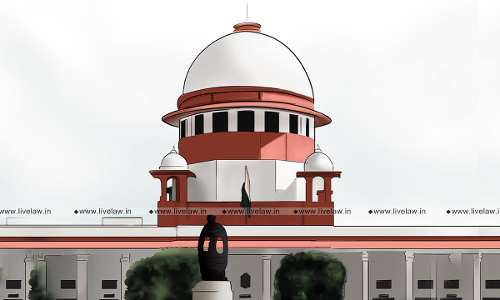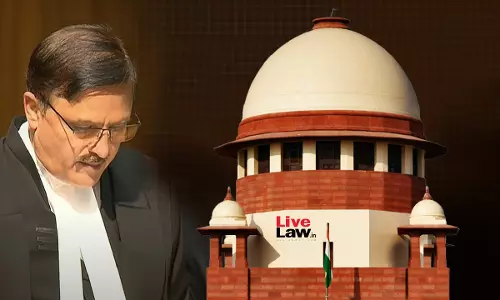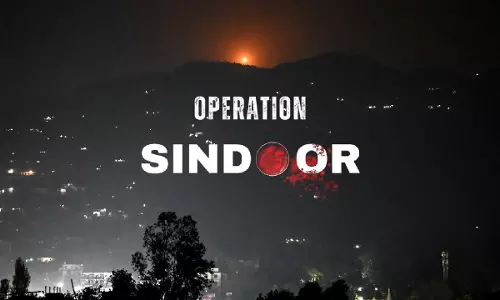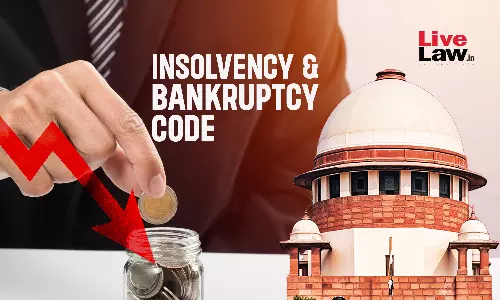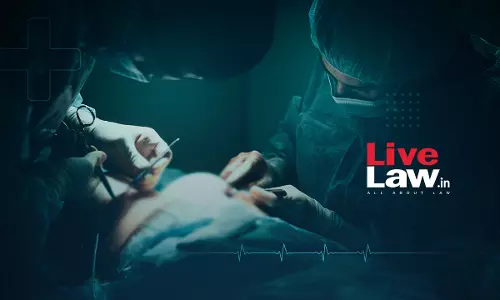Articles
Judicial Contradictions And The Fragility Of Circumstantial Evidence — A Case Study Of Ramkirat Munilal Goud V. State Of Maharashtra
“The law is reason free from passion,” said Aristotle—but in the tragic labyrinth of crime and punishment, even reason can be led astray, and passion mistaken for justice. And yet, sometimes, fate intervenes. Not to forgive, not to forget, but to correct.Prologue to Doom:-In the shadowy tenements of Thane, Maharashtra, a little girl disappeared. What followed was a tale woven from...
Inside the Chambers of Justice Abhay Oka: A Law Clerk's Reflection
In the days following Justice Abhay S. Oka's (hereinafter “Sir”) retirement, much has been said about his jurisprudence, his integrity, and his immense contribution to the Indian judiciary. But beyond his reported judgments lies a story that's rarely told, the story of Justice Oka as a mentor. This article is an opportunity for me to offer a glimpse into what it was to work with Sir.On...
India's Healthcare Challenges And Urgent Need For Comprehensive Health Policy And Insurance Reforms
Healthcare is a fundamental human right. Yet in India, despite constitutional mandates and sporadic governmental initiatives, access to affordable, quality healthcare remains elusive for a significant section of the population. Medical insurance has evolved more as a tax-saving instrument than a meaningful protector against health crises.In contrast, countries like Canada, Australia, and...
Reform Of Illusion: An Analysis On Utility Of Offence Of 'Terrorism' In BNS
The enactment of the Bharatiya Nyaya Sanhita, 2023 (BNS) ushers in a defining moment for India's legal framework, by introducing the offence of terrorist acts under Section 113. Strikingly, this provision is a mirror image of the sections enshrined in Chapter IV of the Unlawful Activities Prevention Act, 1967 (UAPA), sparking curiosity about its purpose and utility. What does this...
Absurd Case Against Ali Khan Mahmudabad & Perils Of Chilling Effect
Professor Ali Khan Mahmudabad, Professor and Head, Department of Political Science, Ashoka University was arrested on 18 May 2025 on the basis of two complaints by a Haryana sarpanch and the chairperson of the Haryana State Commission for Women – objecting to his Facebook post, dated 8 May on the ongoing Indo-Pak conflict and related matters in the aftermath of the gruesome terrorist...
“Spine, Spine, Spine” – A Tribute To Justice Oka
At a program organized by 'The Leaflet' in December last year, Justice Gautam Patel, former judge of the Bombay High Court asked noted legal scholar, Professor Upendra Baxi about the three qualities that a citizen expected to see from a judge. “Spine, spine, spine”, was Professor Baxi's spontaneous response. Sharing the stage with Justice Patel and Professor Baxi was Justice Abhay Oka – a judge who personified this quality.Justice Oka retires Friday (May 23). One can expect richly deserved...
Commemoration Or Commercialization? Battle Over “Operation Sindoor”
As India prepares itself for a war, the Indian Trademark Industry comes across a peculiar registration that has stirred controversy throughout the nation. On May 7, 2025, the Indian Armed Forces, in the dead of the night, conducted a military operation which hit nine terrorist infrastructures situated in Pakistan and Pakistan-occupied Kashmir (PoK). This operation was called...
India's Unilateral Suspension Of Indus Waters Treaty Does Not Violate International Law
In the aftermath of the terror attack in Pahalgam on 22nd April, the Government of India (GOI) implemented various counter-measures measures against Pakistan, inter alia, suspending the operation of Indus Waters Treaty 1960 (IWT) until “Pakistan credibly and irrevocably abjures its support for cross-border terrorism”. This measure raises pertinent international law issues, particularly...
From Tort To Trial: Medical Negligence, Consumer Protection, And Rise Of Defensive Medicine
The Age of Medical Paternalism: A Silence Enforced by TrustUntil the closing years of the 20th century, the relationship between doctors and patients in India was shrouded in a culture of profound deference. Medical paternalism, a doctrine that placed supreme trust in the physician's wisdom, effectively insulated doctors from legal scrutiny. Courts were hesitant to intervene, and patients...
Bhushan Power & Steel Judgment: A Judicial Earthquake In India's Insolvency Landscape
The Supreme Court's decision in Kalyani Transco vs M/s Bhushan Steel and Power Ltd , reported as 2025 INSC 621, is far more than a routine appellate pronouncement. It is, in my respectful submission, a judicial earthquake. For those who have previously served on the National Company Law Tribunal (NCLT), this ruling resonates as both a validation and a rebuke: a validation of judicial...
Why Patient Autonomy, Not Procedural Formality, Must Anchor Consent In Indian Medical Law
From Trust to TransparencyFor generations, the doctor-patient relationship in India was built on implicit trust, steeped in a tradition of deference to medical authority. But as medical technologies advanced and patients became more aware, the law could no longer afford to remain on the sidelines. What began as deference to professional discretion has steadily evolved into a legal doctrine...



